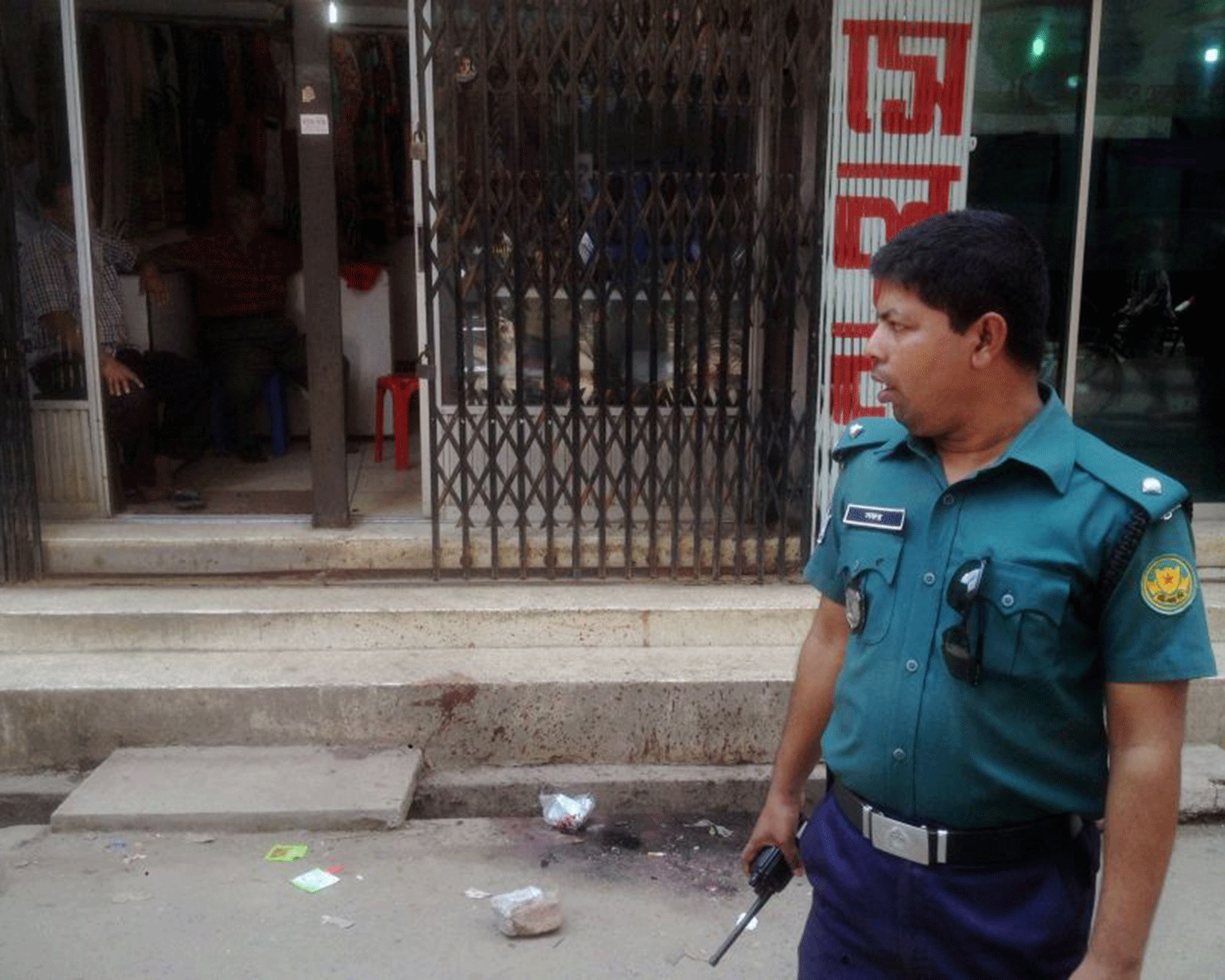Bangladeshi atheist activist Nazimuddin Samad who criticised Islamism hacked to death
Hundreds of students have taken to the streets to demand the killers be caught

A liberal blogger who criticised Islamism on his Facebook page has been hacked to death by attackers wielding machetes in Bangladesh.
Nazimuddin Samad is one of the latest victims in a spate of murders by suspected Islamist militants against secular activists.
The 28-year-old postgraduate law student was attacked as he was returning from a class at his university in Dhaka late on Wednesday, police said.
Tapan Chandra Shaha, a police officer, said three or four men attacked Mr Samad with machetes and then shot him after he fell to the ground.
People heard the attackers shouting "Allahu akbar" - God is greatest - as they fled, he said.
Imran H Sarker, convener of the Blogger and Online Activist Network (BOAN) group, said Samad was an outspoken critic of injustice and militancy.
"We found him always a loud voice against all injustice and also a great supporter of secularism," Mr Sarker said.
Mr Samad campaigned for secularism on Facebook and was critical of radical Islamists - and had also posted concerns about his country's laws a day before his murder, his friends told the Dhaka Tribune.
Describing his religious views on Facebook, he stated: “Evolution is a scientific truth. Religion and race are invention of the savage and uncivil people.”
Wafi Chowdhury, a school friend of Samad, told the Guardian: “Nazim had lived in hostels since grade six and later moved to shared room after he joined university.”
He said Mr Samad had deactivated his Facebook account about a month ago at the request of his family “but I remember him telling me he would come back on Facebook soon with a grin”, said Chowdhury.
There is evidence that Mr Samad's attackers had placed the activist on a "hit list" and had discovered his route home by monitoring his movements for some time.
In protest at the murder, hundreds of students from the Jagannath University where Mr Samad studied took to the streets to demand the prompt arrest of the killers.
They blocked roads in and around the university and told reporters that if those behind the earlier murders of bloggers had been punished then Samad would not have been attacked.
Yet police reported that witnesses were reluctant to come forward.
"Even though the spot was crowded at the time of the murder, they are not sharing any information with the police," Shamir Chandra Sutradhar, a police officer, told the Dhaka Tribune.
Bangladesh has seen a wave of militant violence over the past year or so, including a series of bomb attacks on mosques and Hindu temples.
Some recent attacks have been claimed by Isis, including the killing of a Hindu priest, a Japanese citizen, an Italian aid worker and a policeman.
Last year, suspected militants killed five secular writers and a publisher, including a Bangladeshi-American activist.
A banned Islamist militant group, Ansarullah Bangla Team, claimed responsibility for some of the attacks.
Meahwhile, the government denies that Isis has a presence in the Muslim-majority country of 160 million people.
Additional reporting by PA
Join our commenting forum
Join thought-provoking conversations, follow other Independent readers and see their replies
Comments
Bookmark popover
Removed from bookmarks